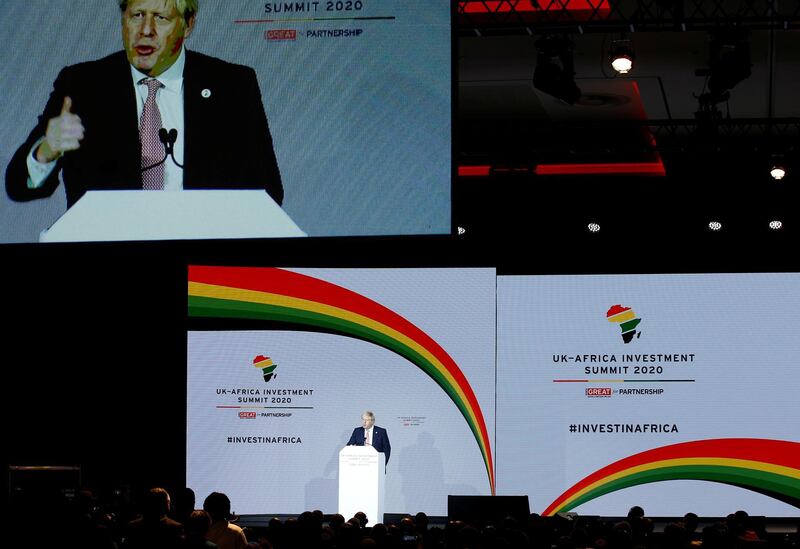British Prime Minister Boris Johnson’s pledge to end investment in African coal projects was overshadowed on Monday after it emerged that it had been UK policy for eight years.
Mr Johnson told African political and business leaders in London that the UK’s “sustainable, forward-thinking” policies set it apart from other countries seeking to invest in the continent’s fast-growing economies.
In a speech, Mr Johnson told African leaders that “from today” the UK would not invest in promoting coal mining or power plants overseas.
“To put it simply, not another penny of UK taxpayers’ money will be directly invested in digging up coal or burning it for electricity,” he said.
UK officials said on Monday that the UK had not funded coal-fired power generation or mining in Africa since at least 2012, although there might have been "ongoing funding" from previous projects.
An earlier government led by David Cameron ended funding for coal-powered projects overseas except for countries where no other “economically feasible alternative” was in place.
Former energy secretary Ed Davey said in 2013 that it was “completely illogical” to cut harmful emissions while “paying for coal-fired power plants to be built in other countries”.
Andrew Scott, director of climate and energy at the Overseas Development Institute think tank, said that UK investment in one or two legacy projects was an insignificant part of the £4.6 billion invested in African fossil fuel – mainly oil and gas – between 2010 and 2017.
“I would be more excited by an announcement on investing in renewables in Africa," Mr Scott said.
"The government has announced some but they’re relatively small scale."
The UK-Africa Investment Summit on Monday was the largest of its kind organised by the British government as it seeks to expand global trading and investment opportunities after it leaves the EU on January 31.
One of the key areas discussed was the development of clean energy, which is a major theme for Africa where hundreds of millions of people remain without power.
Lucy Heintz, a partner at energy investor Actis, said investment of £1.3bn a day was needed to bring power to 840 million people.







